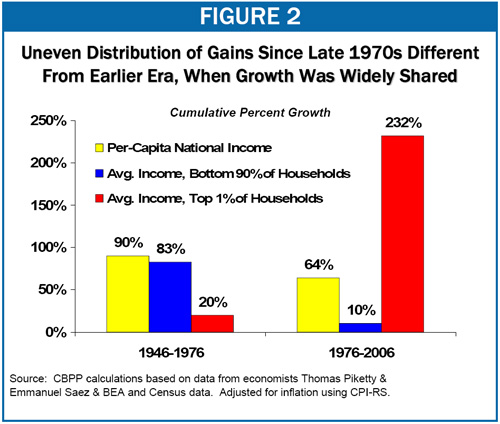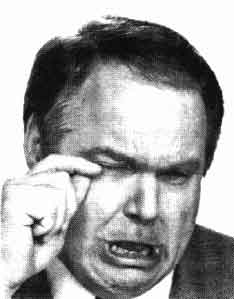If George W Bush had proposed to double the national debt, which had taken more than two centuries to accumulate, in one year, would you have approved?
Not only do you 'BLOW CHUNKS OF STUPIDITY', here's some facts for your éclaircissement but you may need your mommy or daddy to explain the complex reasoning behind your continual confusion and total unbelievable ignorance regarding your 'MESSIAH' G.W.B. and his 8 year economic blunder!!!
 Read it and weep...
http://en.wikipedia.org/wiki/George_Walker_Bush#Presidency
Economic policy
Read it and weep...
http://en.wikipedia.org/wiki/George_Walker_Bush#Presidency
Economic policy
Main article:
Economic policy of the George W. Bush administration
Facing opposition in Congress, Bush held town hall-style public meetings across the U.S. in 2001 to increase public support for his plan for a
$1.35 trillion
tax cut program—one of the largest tax cuts in U.S. history.
[42] Bush argued that unspent government funds should be returned to taxpayers, saying "the surplus is not the government’s money. The surplus is the people’s money."
[42] With reports of the threat of recession from
Federal Reserve Chairman Alan Greenspan, Bush argued that such a tax cut would stimulate the economy and create jobs.
[82] Others, including the Treasury Secretary at the time
Paul O'Neill, were opposed to some of the tax cuts on the basis that they would contribute to budget deficits and undermine
Social Security.
[83] By 2003, the economy showed signs of improvement, though job growth remained stagnant.
[42]
Under the Bush Administration, real
GDP grew at an average annual rate of 2.5%,
[84] considerably below the average for business cycles from 1949 to 2000.
[85][86] Bush entered office with the
Dow Jones Industrial Average at 10,587, and the average peaked in October 2007 at over 14,000. When Bush left office, the average was at 7,949, one of the lowest levels of his presidency.
[87] Unemployment originally rose from 4.2% in January 2001 to 6.3% in June 2003, but subsequently dropped to 4.5% as of July 2007.
[88] Adjusted for inflation,
median household income dropped by $1,175 between 2000 and 2007,
[89] while Professor Ken Homa of Georgetown University has noted that "after-tax median household income increased by 2%"
[90] The poverty rate increased from 11.3% in 2000 to 12.3% in 2006 after peaking at 12.7% in 2004.
[91] By October 2008, due to increases in domestic and foreign spending,
[92] the national debt had risen to $11.3 trillion,[93][94] an increase of over 100% from the start of the year 2000 when the debt was $5.6 trillion.[95][96] By the end of Bush's presidency, unemployment climbed to 7.2%.
[97] The perception of President Bush's effect on the economy is significantly affected by
partisanship.
[98]
In December 2007, the United States entered the longest post-
World War II recession,
[99] which included a
housing market correction, a
subprime mortgage crisis,
soaring oil prices, and a declining dollar value.
[100] In February, 63,000 jobs were lost, a five-year record.
[101][102] To aid with the situation, Bush signed a $170 billion economic stimulus package which was intended to improve the economic situation by sending tax rebate checks to many Americans and providing tax breaks for struggling businesses. The Bush administration pushed for significantly increased regulation of
Fannie Mae and
Freddie Mac in 2003,
[103] and after two years, the regulations passed the House but died in the Senate. Many Republican senators, as well as influential members of the Bush Administration, feared that the agency created by these regulations would merely be mimicking the private sector’s risky practices.
[104][105] In September 2008,
the crisis became much more serious beginning
with the government takeover of
Fannie Mae and Freddie Mac followed by the collapse of
Lehman Brothers[106] and a federal bailout of
American International Group for $85 billion.
[107]
Many economists and world governments determined that the situation became the worst financial crisis since the
Great Depression.
[108][109] Additional regulation over the housing market would have been beneficial, according to former
Federal Reserve Chairman
Alan Greenspan.
[110] President Bush, meanwhile, proposed a
financial rescue plan to buy back a large portion of the U.S. mortgage market.
[111] Vince Reinhardt, a former Federal Reserve economist now at the American Enterprise Institute, said
"it would have helped for the Bush administration to empower the folks at Treasury and the Federal Reserve and the comptroller of the currency and the FDIC to look at these issues more closely", and additionally, that it would have helped "for Congress to have held hearings".
[105]
In November 2008, over 500,000 jobs were lost, which marked the largest loss of jobs in the United States in 34 years.[112] The Bureau of Labor Statistics reported that in the last four months of 2008, 1.9 million jobs were lost.[113] By the end of 2008, the U.S. had lost a total of 2.6 million jobs.[114





